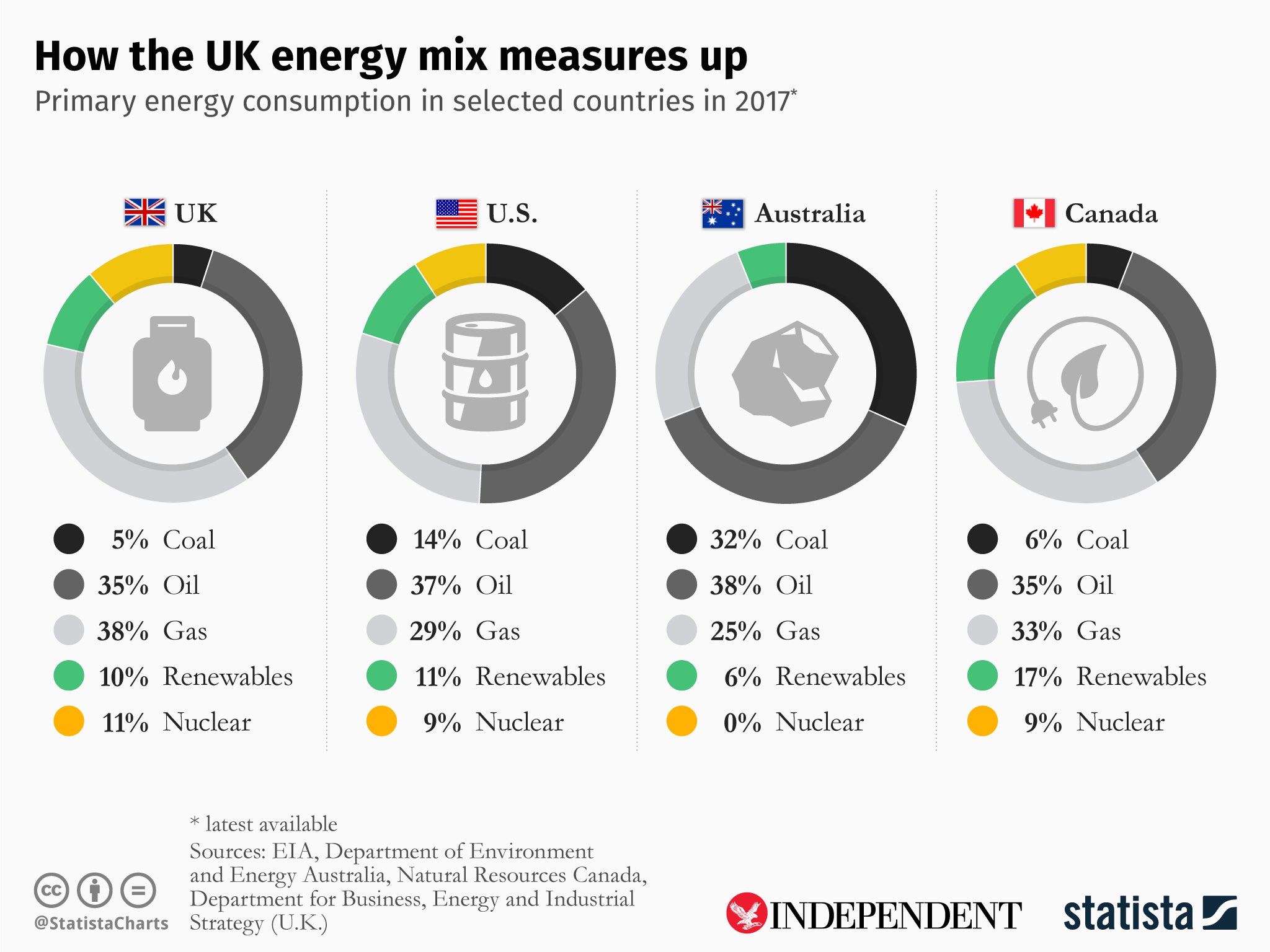UK goes a fortnight without burning coal for first time since industrial revolution
Milestone comes just two years after Britain marked its first full day without using the fossil fuel
Britain has gone two weeks without using coal power for the first time since the industrial revolution, smashing its previous record of eight days set earlier this month.
The milestone, which will be reached at 3.12pm on Friday, marks the only coal-free fortnight since the world’s first coal-powered plant opened in London in 1882.
The National Grid said the record was assured, since coal plants take six hours to warm up and become available on the system - too long to use by the end of Friday afternoon.
It comes just two years after the UK marked its first full day without burning the fossil fuel.
Fintan Slye, National Grid electricity system operator, said: “As more and more renewables come onto the system, we’re seeing things progress at an astonishing rate.
“We also broke our solar record for [Britain] this month – with one day seeing over a quarter of the country powered by the sun.”
While 2018 was the “greenest year to date” for Britain’s electricity supply, 2019 has the potential to beat it, Mr Slye added.

“As we predicted when we first broke the record for a week of no coal generation at the start of the month, events such as today’s will become the ‘new normal’. As we move towards 2025, we believe that we will be able to operate Great Britain’s electricity system with zero carbon generation.”
Energy and clean growth minister, Chris Skidmore, said Britain was “reaping the rewards” of investment in renewable energy.

“The UK has the largest offshore wind capacity on the planet, can generate more than a quarter of our electricity needs from the sun and last year more than half of our electricity came from low carbon sources,” he said.
Despite the phasing out of coal, the UK is far from meeting targets that would get it to net zero emissions by 2050 – as was demanded earlier this month by the government’s climate change advisers.
By far the biggest source of energy remains natural gas, another fossil fuel that pumps carbon into the atmosphere and contributes to global warming.
Although less harmful than coal, the 2008 Climate Change Act requires gas emissions to be reduced by 80 per cent in 2050 compared with 1990 levels.
Britain continues to pump out thousands of tonnes of CO2 per hour, and in 2017 – the latest year for which figures are available – the UK emitted a total of 367 million tonnes of the heat-trapping gas.
Join our commenting forum
Join thought-provoking conversations, follow other Independent readers and see their replies
Comments
Bookmark popover
Removed from bookmarks